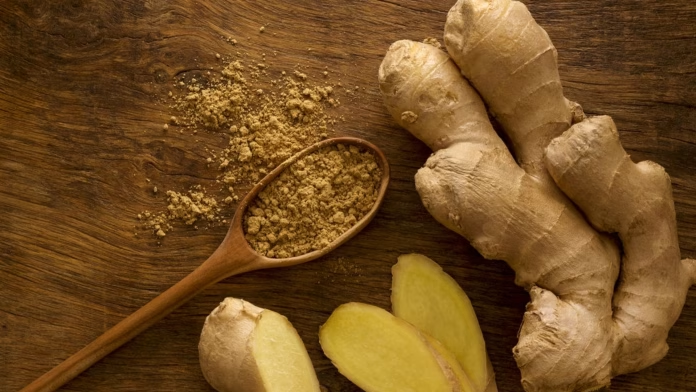Ginger is a flowering plant native to Southeast Asia that is widely cultivated for its flavorful and aromatic root. With a long history of use in both culinary and medicinal traditions, ginger has become a popular ingredient in many cuisines around the world.
Ginger has a heating quality that can help improve digestion, stimulate circulation, and reduce inflammation in the body. It is often used in Ayurvedic remedies to treat ailments such as colds, coughs, and sore throats. Ginger is also known to have an uplifting effect on the mind and can help reduce stress and anxiety.
Ginger is typically consumed in the form of ginger tea or added to dishes as a spice. It is considered a safe and natural way to promote overall health and wellbeing, and its popularity as a medicinal herb has only continued to grow in recent years as more people turn to natural remedies for their health concerns.
Here is how ginger can help reduce muscle damage post-workout:
Muscle damage is a common occurrence after a strenuous workout, leading to muscle soreness and stiffness. However, a natural ingredient like ginger may be able to help reduce this damage and alleviate the associated pain.
Studies have shown that consuming ginger before or after exercise can help reduce muscle soreness and improve recovery time.
One study published in the Journal of Pain found that consuming a daily ginger supplement for 11 days significantly reduced muscle pain by 25% in people performing elbow exercises. Another study published in the Journal of Strength and Conditioning Research found that consuming a combination of ginger and cinnamon after exercise reduced muscle soreness and improved recovery time in participants.
But how does ginger work to reduce muscle damage?
The answer lies in its active ingredient, gingerol. Gingerol has been shown to have powerful anti-inflammatory and antioxidant properties, which can help reduce the oxidative stress and inflammation that occurs in the muscles post-workout. Additionally, ginger has been shown to have pain-relieving properties, which can further alleviate the discomfort associated with muscle damage.
Incorporating ginger into your post-workout routine is easy. You can add fresh ginger to your meals, drink ginger tea, or take a ginger supplement. It’s important to note that while ginger is generally safe, it may interact with certain medications and should not be taken in excessive amounts.
Ginger may be a useful tool in reducing muscle damage and improving recovery time post-workout. Its anti-inflammatory and pain-relieving properties make it a natural choice for those looking to alleviate the discomfort associated with strenuous exercise. If you’re looking to add ginger to your post-workout routine, consider speaking with a healthcare professional to ensure it is safe for you to do so.





